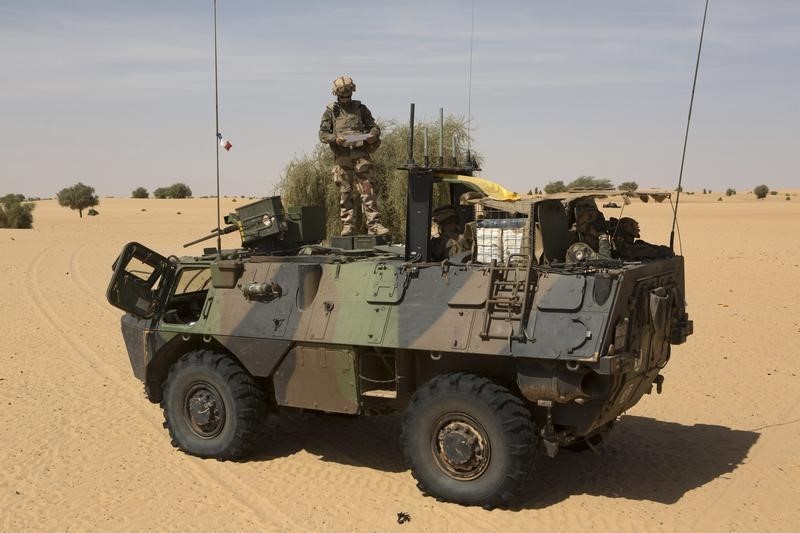By Boureima Balima
NIAMEY (Reuters) - Mali and Niger, two of the West African nations worst affected by jihadist violence, appealed on Wednesday for international funding for a regional force they have set up to counter Islamist insurgencies.
Mali's President Ibrahim Boubacar Keita and Niger's Mahamadou Issoufou said the force assembled by the G5 Sahel bloc -- Mali, Mauritania, Burkina Faso, Niger and Chad -- was crucial to fighting a threat that went well beyong their borders.
"We bring this combat against terrorism not only to protect our own people and countries but for the whole world," Issoufou told a news conference in Niger's capital Niamey.
"For terrorism knows no border. It will go to Europe, it will go to the United States," he said. "The world has to be mobilised."
The idea of the G5 force was first dreamed up in 2015, but only in July last year did the countries set it up. It is expected to comprise around 5,000 troops. French President Emmanuel Macron has said he expects it to be operational by the autumn.
Islamist groups, some with links to al Qaeda, seized Mali's desert north in 2012. French-led forces scattered them the following year but they still attack peacekeepers, soldiers and civilian targets in Mali, Niger, Burkina Faso and Ivory Coast.
Issoufou said a multinational force in the Lake Chad region, including soldiers from Niger, Nigeria, Chad and Cameroon, had had some success against Islamist Boko Haram militants, but that this was financed by Africa's biggest economy, Nigeria, whereas no country in the G5 had sufficient resources.
"It is important that the international community takes note of this and gets together to give us resources to ensure our mission can be accomplished," he said.
Analysts see the G5 force as the basis of an eventual exit strategy for around 4,000 French troops deployed to the region on counter-insurgency missions, mostly in Mali.
"We have only limited means, but if we mutualise our power, our sovereign elements will have more force, more vitality than we imagine," Malian President Keita said.
Issoufou said the force would be divided into three deployments across the Sahel region: an eastern one consisting of Chadian and Nigerien forces, a central one with forces from Niger, Mali and Burkina Faso, and a Western one with troops from Mali and Mauritania.
